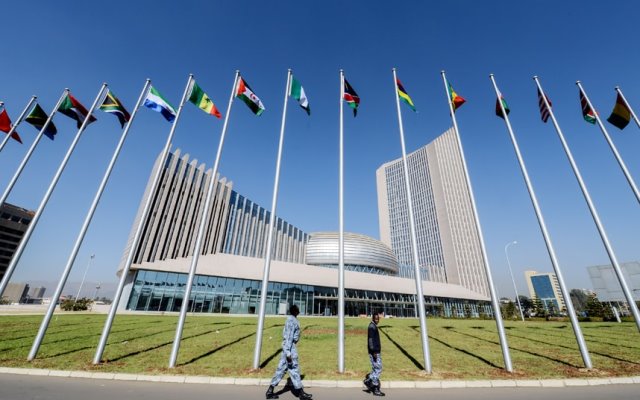African trade ministers have deliberated on the protocols to the agreement establishing African free trade area (AfCFTA), and the modalities for tariff liberalization.
The 6th African Union Ministers of Trade (AMOT) meeting held in Dakar, Senegal.
According to a press release issued Monday by South Africa’s Department of Trade and Industry, “the conclusion of the annexes to the Protocol on Trade in Goods and the annexes to the Protocol on Dispute Settlement is a significant achievement”.
“The conclusion of this work enables South Africa to rapidly commence domestic processes for signature of the AfCFTA”, the release quoted deputy trade minister Bulelani Magwanishe, who attended the AMOT meeting, as saying.
“We must ensure that the disciplines on modalities for tariff liberalization support the creation of commercially meaningful value-chains in Africa, such that we attract investment in job creating productive sectors,” he added.
The AMOT meeting was preceded by the 11th Meeting of the African Continental Free Trade Area (AfCFTA) Negotiations Forum, and the 6th Meeting of the AfCFTA Committee of Senior Officials of Trade.
The outcomes of the 6th AMOT meeting in Dakar will be submitted and considered by the African Union summit to be held in Mauritania in July 2018.
It would be recalled that on 21 March 2018 in Kigali, Rwanda, an extraordinary summit of AU leaders resulted in the signing of the AfCFTA Agreement by 44 countries and the signing of the Declaration establishing the AfCFTA by 43 countries.
The AfCFTA offers an opportunity to create larger economies of scale, a bigger market and improve the prospects of the African continent to attract investment.
“South Africa is, therefore, committed to a coordinated strategy to boost intra-Africa trade, and to build an integrated market in Africa that will see a market of over 1 billion people with a GDP of approximately US$3.3 trillion. Beyond the Tripartite Free Trade Area (TFTA), the AfCFTA will provide new export opportunities for South African products in West Africa and North Africa.
“The AfCFTA is being pursued under the development integration approach that combines market integration with industrial and infrastructure development to ensure that we address Africa’s productive capacity and supply side constraints, promote the diversification of Africa’s export base from dependence on raw materials to value added products, as well as alleviate the infrastructure deficit in Africa.”





